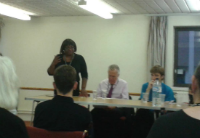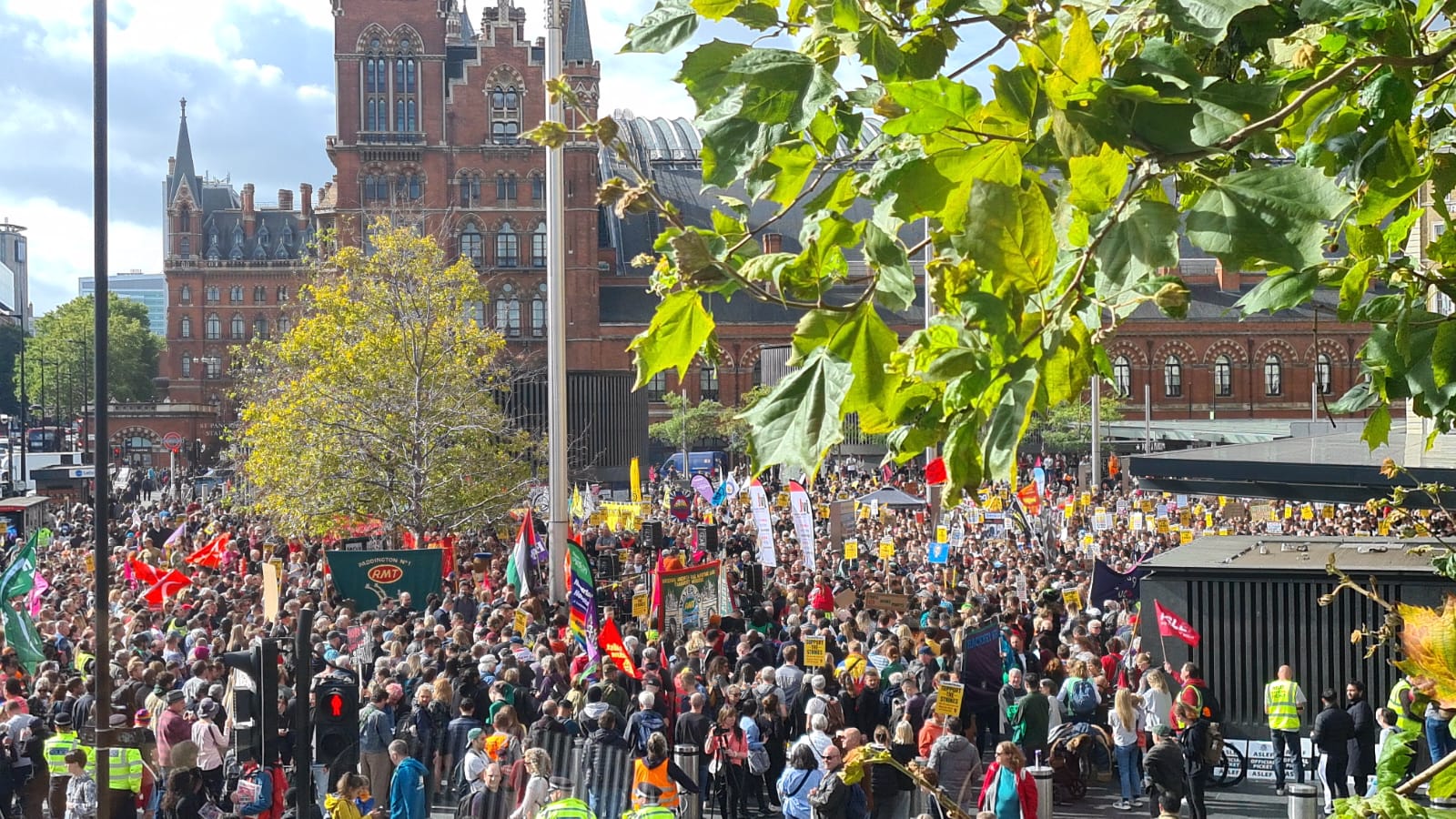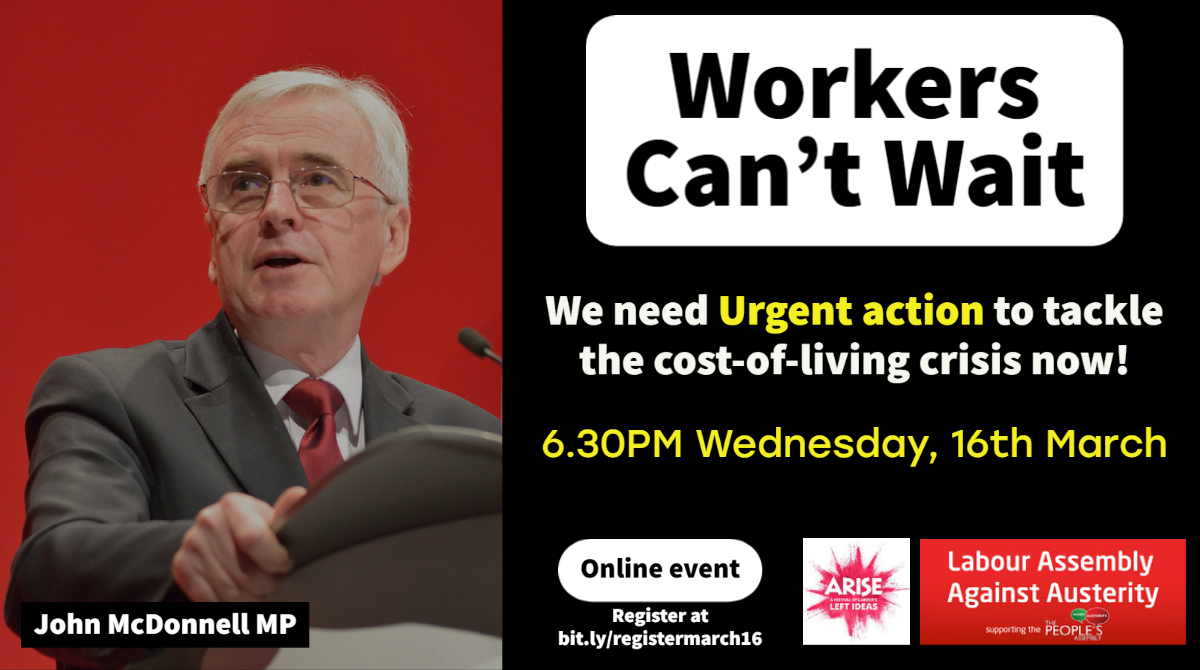 Against the backdrop of the slowest recovery on record and declining living standards, a new movement, Labour Assembly Against Austerity, was launched at the party’s annual conference on Sunday.
Against the backdrop of the slowest recovery on record and declining living standards, a new movement, Labour Assembly Against Austerity, was launched at the party’s annual conference on Sunday.
Calling for Labour to offer serious alternatives to Tory austerity the Labour Assembly Against Austerity has already attracted the support of over 20 Labour MPs and over 500 councilors and activists.
Its statement “rejects austerity as a solution to the economic crisis. Instead of cuts, we support a plan for public investment and jobs that can get the economy growing. We believe by offering a progressive economic alternative to austerity, Labour can best reach out to a broad coalition of voters whose living standards have declined under this Coalition government. In contrast, sticking to the Tory spending limits in the next Parliament would be a disaster for Labour”.
It has announced it will hold a national conference on 9th November.
The launch meeting heard from Peter Hain MP, former Cabinet member, who attacked the Tory’s claim that the economy was returning to health pointing out that “this recovery may be happening in the South East but its not in South East Wales or the North East of England”. He said it was the longest lasting slump since the 19th Century.
Peter Hain welcomed that Labour has said there should be “£10bn of investment in housing” but called on it to show much more ambition. He backed the call from the respected National Institute of Economic and Social Research, which said investing £30 billion over the next two years would both boost growth in the short term and increase the UK’s potential economic output over the longer term.
Peter Hain called for his Labour colleagues to have confidence in the argument that the best way “to cut borrowing and the national debt is to get the economy moving again” and that investment is the key to this. He reminded the meeting that the “modest” stimulus by Alistair Darling had seen growth return to the economy before the Tories choked it off with their cuts agenda. He explained that “a few years of 3% growth through investment and the deficit problem will vanish” and said that “some in our own ranks need to understand what Keynes taught us”.
Peter Hain said Labour needs to keep exposing the Tory myths around the economy: “we have to destroy the Tory lie that recruiting and expanding the public sector caused the sub-prime market crash”. He said ” if Labour wins this argument then we can win the next election”.
Shadow Minister Diane Abbott MP said that “a generation of Tory MPs ..had long sought to cut back the public sector” and that these were “not cuts of necessity – its a political choice” with the aim to “roll back the gains of working people since 1945”.
She cited London as an example of how “it is important that the Labour Party looks after the public sector, not only for reasons of equality but for employment”. In London it was the second largest employer.
She said that the attitude to austerity will be central to Labour’s levels of support and, referring to the current debate of the role of the unions in the Labour Party, asked “why would ordinary public sector workers..pay to join the Labour Party unless its defending living standards”. She said that that the Party “should defend the public sector”.
Cat Smith, Labour’s parliamentary candidate in Lancaster and Fleetwood, addressed how “the Tory cuts agenda is really an attack on women and as a result gender equality is sliding backwards”. She emphasised that “Labour has to do things differently” and feared that “if we attempt to be a party of austerity light then it will be more difficult for some voters to back us”.
Martin Mayer, Executive member of Unite the Union, which is supporting the Labour Assembly Against Austerity conference on 9 November, welcomed that,like Unite, it is “against all the cuts”.
Martin warned that the Tories have delayed “the most drastic years of cuts” into the next Parliament and that this will hurt politically whoever is carrying them out.
He said that movements such as People’s Assembly Against Austerity “can engage many people alienated by politics” with “a positive vision of hope, jobs and sustainable growth”. Such movements are also key to “making Labour a party that millions of working people have faith in” and said that this was key to electoral support. He added that Labour “will never satisfy the vultures in the right wing press” who will always demand Labour cedes further to the austerity agenda.
Underlining how austerity is a political choices he attacked the remarks of Lord Young, the prime minister’s adviser on enterprise, who earlier this year said that the economic downturn is an excellent time for new businesses to boost profits and grow because real wages were falling rapidly. Martin Mayer warned that “Labour can’t go along with this agenda” and instead it should use the role of government as “the motor of the recovery”.
Conrad Landin, a member of the Young Labour National Committee, addressed how Labour can reach out to younger voters saying that “there are huge numbers who voted for the Lib Dems and are now disillusioned”. But he feared that it remains a “huge challenge” to tap into these people but that “if we can build a broad coalition against austerity…these are the policies that will engage young people”.
The Labour Assembly Against Austerity will be held on 9 November. Initial speakers include Ken Livingstone; Owen Jones, writer; Ann Pettifor, economist, Diane Abbott MP; Jeremy Corbyn MP; Michael Meacher MP; John McDonnell MP; Catherine West, PPC; Cat Smith, PPC; Clive Lewis, PPC; Steve Turner and Mike Hedges, Unite the Union; Pete Willsman, CLPD; Conrad Landin, Young Labour National Committee; Kate Taylor, Young Labour National Committee; Shelly Asquith, Next Generation Labour. A list of supporters of the Labour Assembly Against Austerity and further details can be found at http://labourassemblyagainstausterity.org.uk



0 Comments